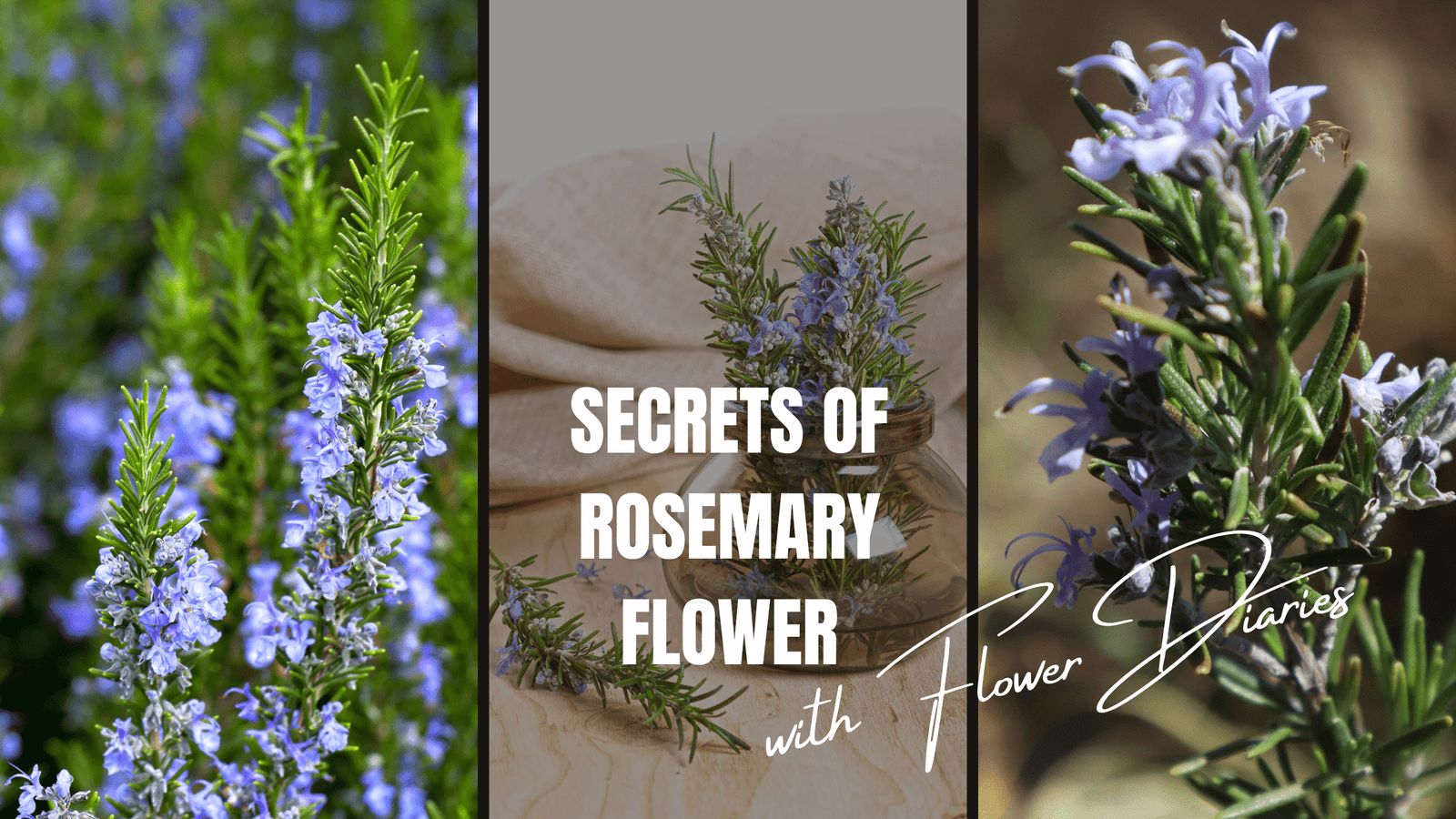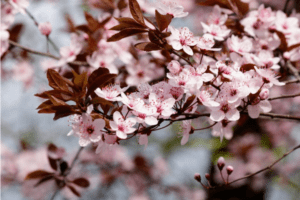the Secrets of Rosemary Flower: Nature’s Hidden Gem for Health and Beauty
I. Introduction to Rosemary Flower
A. Overview of Rosemary Flower
Rosemary is more than a fragrant herb commonly used in cooking; it’s also a beautiful plant that produces vibrant blooms with an array of health and beauty benefits. Known for its needle-like leaves and delicate purple-blue blossoms, the rosemary enhances dishes and offers medicinal properties. Native to the Mediterranean, this evergreen plant not only flavors meals but is also packed with essential oils that benefit health and wellness.
B. HISTORICAL PERSPECTIVE OF ROSEMARY
In every culture that is known in the historical past, there is use of the rosemary Blossoms. With the ancient Greeks and Romans the rose represented recollection and this flower was included in bridal as well as funeral wreaths. In time, it was incorporated in religious ceremonies as well as used in food preparation making it a highly valued plant due to its effects of improving memory and increasing life span. The rosemary was indeed considered as the gift from the nature.
C.1 The scientific classification of Rosemary
It is worth to notice that the rosemary plant does bloom, or rather blooms during a particular time of the year, specifically – from late winter through early spring. Rosemary scientifically referred to as Rosmarinus officinalis is a member of mint family (Lamiaceae). It is drought tolerant and grows best in full sun and can reach a height of up to five feet. The flowers are rather small but they are powerful, containing such components as essential oils that make the list of rosemary flower uses extremely diverse.
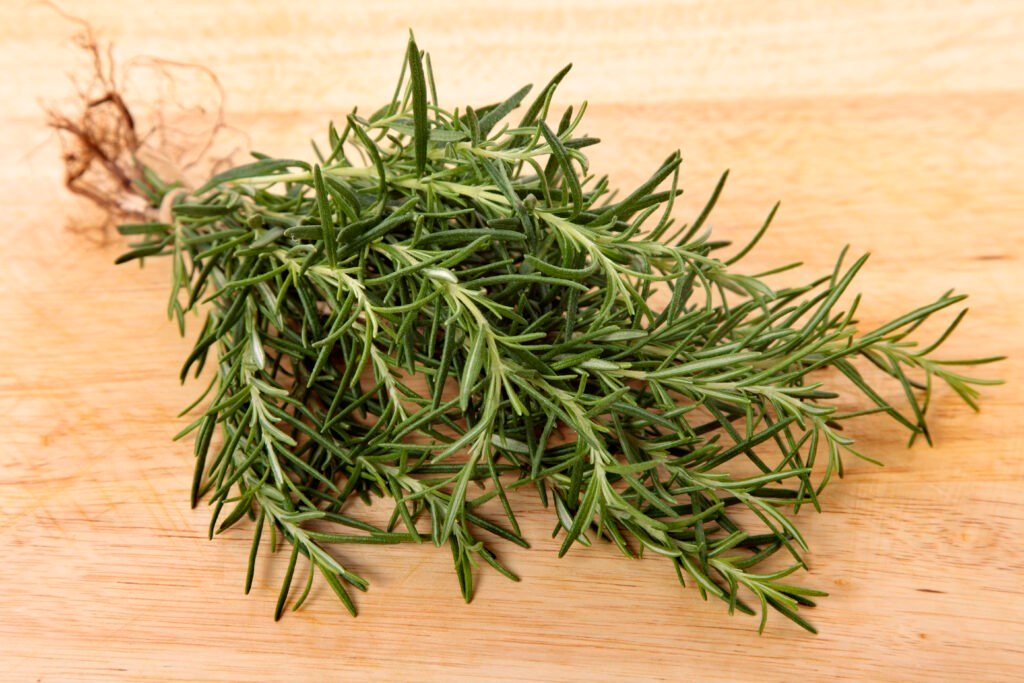
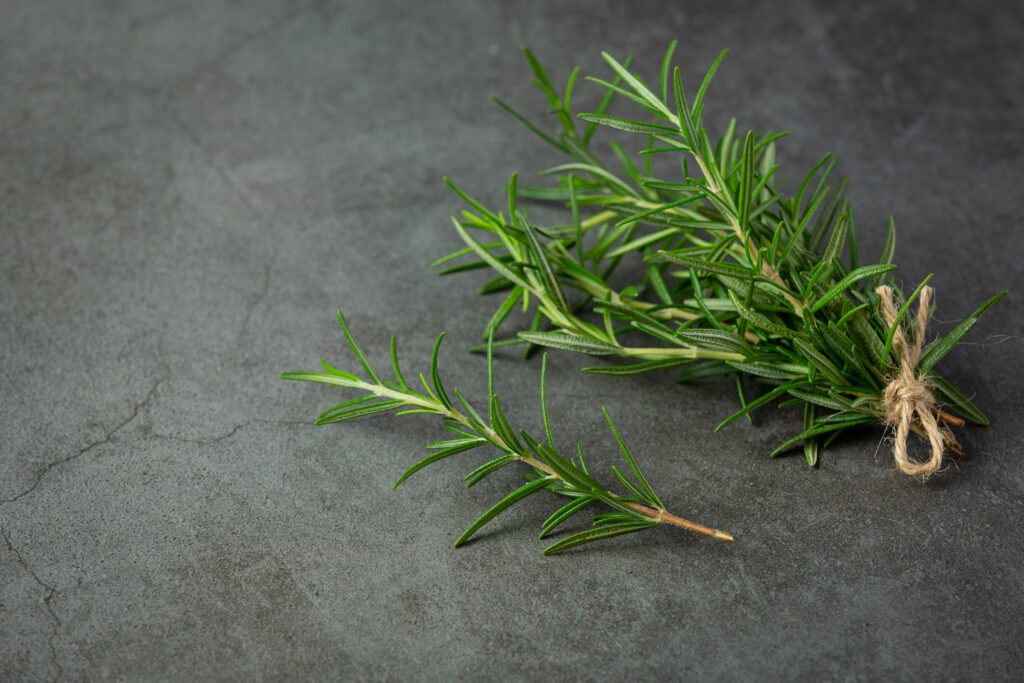
II. Health Benefits of Rosemary Flower
A. Nutritional Value of Rosemary
Is it possible that rosemary has nutrients and some health benefits for the body? undefined It is packed with vitamins and minerals that make it ideal for incorporation in both the foods and health regimes.
- Vitamins and Minerals: The flower of rosemary contains vitamin C, vitamin A, calcium, and iron that is known to have various functions in the body.
- Antioxidant Properties: Ultimately, rosemary has antioxidants that assist in combating oxidative stress and maintain the health of human body cells.
B. Medicinal Uses of Rosemary
Rosemary’s essential oils, derived from both the leaves and flowers, are renowned for their medicinal properties.
- Digestive Health: Rosemary is often used to alleviate indigestion. Rosemary tea, made from the flowers and leaves, can help soothe upset stomachs.
- Memory Enhancement: Studies have shown that the scent of rosemary can improve memory and cognitive function.
- Anti-inflammatory Effects: Compounds in rosemary can reduce inflammation, which may be helpful for conditions like arthritis and muscle pain.
C. Potential Health Risks
While the rosemary plant flowers have numerous benefits, caution is necessary when using them.
- Allergic Reactions: Some individuals may experience allergic reactions, especially those allergic to other plants in the mint family.
- Drug Interactions: Rosemary may interact with certain medications, including blood thinners, so it’s always best to consult a healthcare provider.
- Recommended Dosage: Culinary use of rosemary is generally safe, but excessive consumption or supplementation may cause adverse effects.
III. Rosemary Flower in Beauty Care
A. Skin Care Benefits of Rosemary
Flower of rosemary is the most beneficial for the skin and for the overall health of the skin.
- Anti-aging Properties: These are a good way of fighting wrinkles and fine lines that lead to youthful skin.
- Acne Treatment: For controlling acne and oil secretion, rosemary flower has antibacterial properties.
- Hydration: The products that are infused with Rosemary can penetrate deep into the skin to really moisturize it as well as give the skin a natural glow.
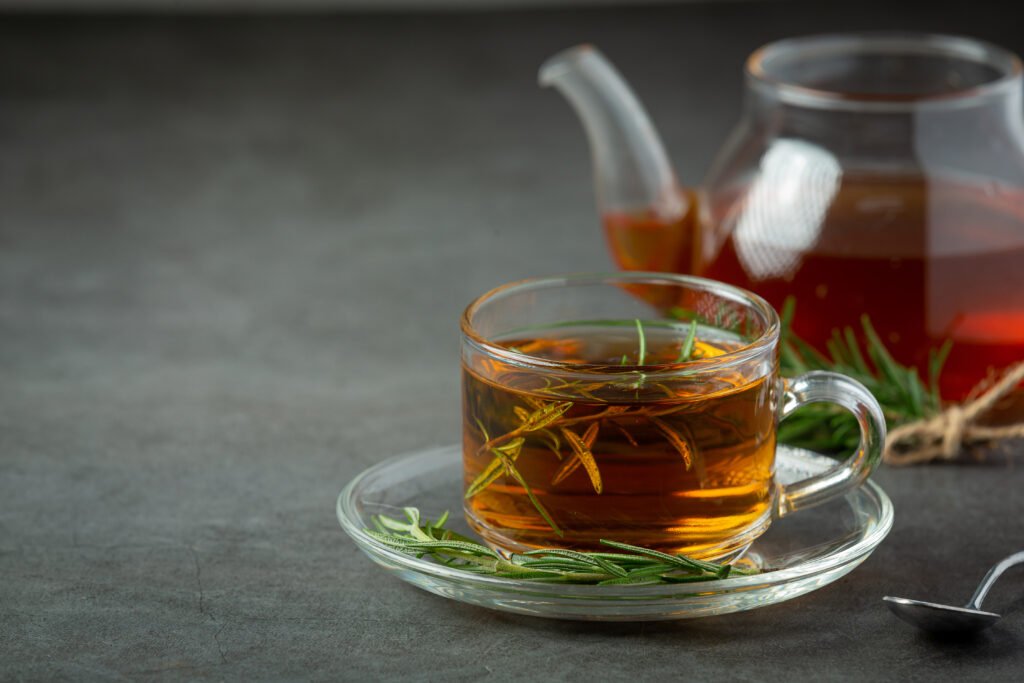
B How Rosemary Herb Flower Supports Hair Health
Rosemary for Hair Growth
The benefits of rosemary do not end at the skin, it is also very effective for hair care as well.
1. Encourages Scalp Health
Rosemary consists of natural antifungal and anti-inflammatory agents which promote a clean healthy scalp. Rosemary-scented oils or rinses will decrease dandruff, itchiness and will maintain your scalp in equilibrium.2. Accelerates Hair Growth.
A possibility to enhance hair growth is considered to be one of the most cherished properties of rosemary herb. It aids in increasing the circulation of the blood to the scalp, beefs up hair roots and causes healthier and fuller hair with continued use.3. Provides Shine and Strength
Just a hair rinse made of rosemary flower can make your hair shiny and your hair feels robust. It eliminates frizz, minimizes breakage and is a natural conditioner leaving your hair soft and easy to manage.4. Aids In Minimizing Hair Fall
Common rosemary oil or spray can be used to reduce the rate of thinning of the hair. People usually compare it to the synthetic solutions, such as minoxidil, although in more natural manner, by conditioning the scalp and roots

C. DIY Beauty Recipes Using Rosemary Flower
This is one of the most effective ways of making your own beauty care products at home using rosemary.
- Rosemary Facial Toner: Take rosemary flowers and boil them in water and make a tea, cool it and then wash your face with it to minimize the size of the pores.
- Hair Rinse: Rinse the hair with rosemary flower infused water as the last wash if you want shiny and healthy hair.
- Soothing Oil: Add rosemary flower to carrier oil and get an effective oil for massage or skin care.
D Rosemary Benefits for Hair
5 Best Rosemary Oil Hair Fall Control Benefits
1. Accelerates Hair Growth.
Rosemary oil has been shown to increase circulation of the blood to the scalp which has the effect of stimulating the hair follicles and promoting the growth of thicker and longer hair.
2. Limits Hair Loss
Its natural constituents work to make the hair roots stronger which reduces hair breakage and hair thinning with time.
3. combats Dandruff and Itchy Scalp.
Rosemary oil has antifungal and antibacterial qualities, which eliminate dandruff and help in cooling an itchy or flaky scalp, thus limiting hair fall.
4. Scalp Oil by Balances.
It also balances the unnecessary oil or dryness on the scalp making it a healthy scalp to grow stronger hair.
5. Enhances Shine and Strength of Hair
With continuous usage, the hair texture is improved, and it gets a natural shine, and split ends as well as breakage is minimized.
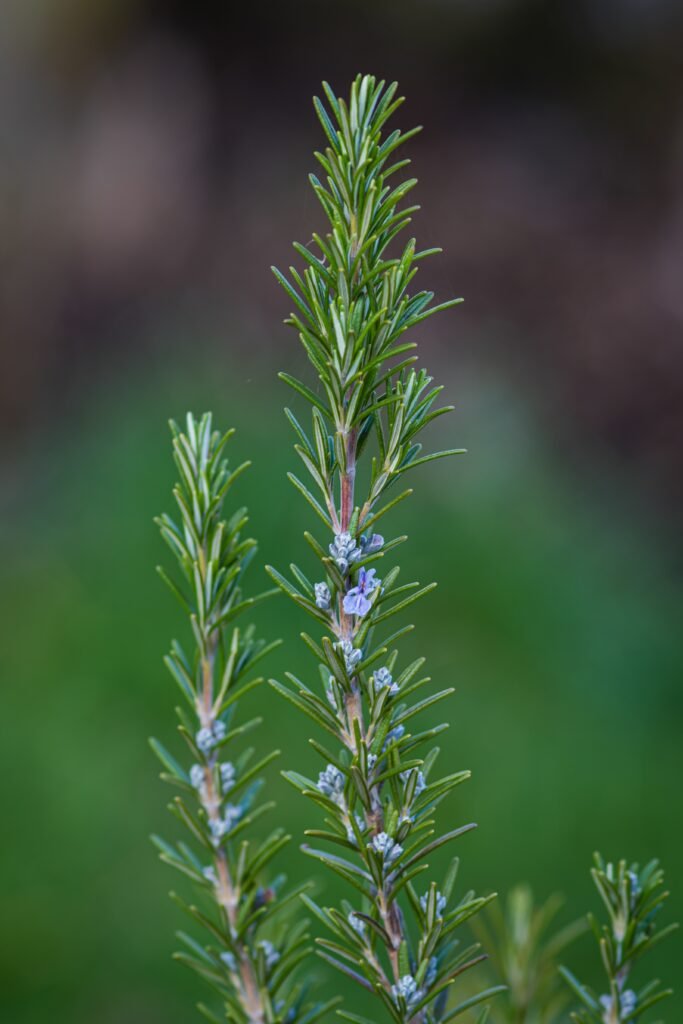
IV. Culinary Uses of Rosemary
A. Flavor Profile of Rosemary Flower
Are the flowers of rosemary edible? Yes! Not only are they food items that people can consume, but they also have an extra taste to them.
- Aroma and Taste: The piney, minty flavor of rosemary flower is good for garnishing various food recipes, for instance soups.
- Culinary Versatility: Rosemary should be taken in soups, roasted foods and marinades.
- Pairing with Ingredients: Rosemary pair well with meats, root vegetables, garlic, and lemon.
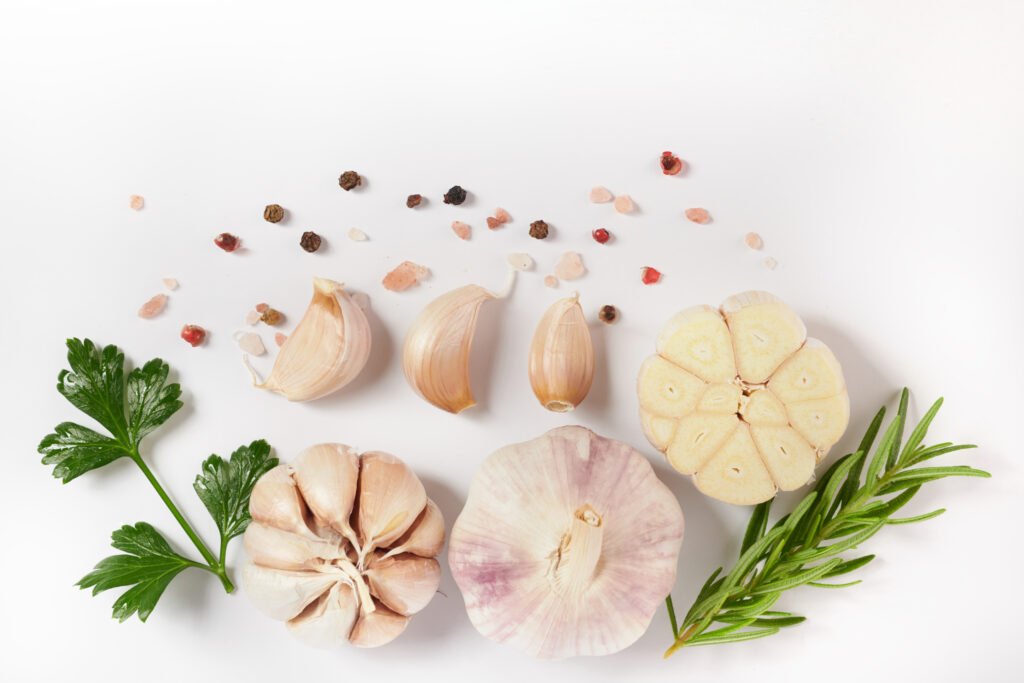
B. Cooking with Rosemary Flower
Rosemary are easy to include in cooking, and this will bring a different, but very nice scent.
- Popular Dishes: The flowers of rosemary can be eaten and they can be used to garnish roasted chicken, lamb or even roasted potatoes.
- Marinades and Infusions: Use the flowers to add flavor to oils or vinegar for use in marinating foods.
- Herbal Teas: Prepare mouth-watering herbal teas with rosemary flowers soaked in hot water.
C. Preserving Rosemary Flowers
Incorporating rosemary into cooking is easy and adds a fragrant twist.
- Drying: When you have flowers that you want to use later, you should hang the rosemary bouquets upside down in a cool dark area.
- Freezing: Preserve rosemary by putting them in ice cube trays with water, or with olive oil for later use in meals.
Infusing Oils and - Vinegars: Use rosemary to marinate oils or vinegars for extra flavor to the foods that you are cooking.
V. Growing and Harvesting Rosemary Flower
A. Ideal Growing Conditions for Rosemary
The rosemary plant does bloom in certain conditions and growing this plant is not very difficult.
- Soil and Sunlight: To encourage growth of a healthy rosemary plant, one has to ensure that the soil is well drained and that the plant is exposed to direct sunlight.
- Watering Needs: Rosemary is not very thirsty: allow the top layer of the earth to dry before watering the plant again.
- Pest Management: Prevent pests such as aphids from getting to your plants through the use of natural control methods.
B. Harvesting Rosemary Flowers
Timing is very important when it comes to harvesting rosemary flowers so that you get the best out of it.
- When to Harvest: It is recommended to cut the flowers before the flowers open up so that you can get the greatest amount of oil.
- Proper Techniques: To measure rosemary flowers, employ sterilized scissors to cut rosemary flowers.
- Storing Fresh Flowers: Take fresh rosemary flowers; wash them and put them in a damp cloth; then put them in the refrigerator.
C. Growing Rosemary at Home
It is quite simple to grow rosemary flower bouquets and very fulfilling if done at home.
- Container Gardening: Rosemary is easy to grow in pots and therefore ideal for growing in limited space.
- Indoor vs. Outdoor: It is also important to note that rosemary flowers can be grown both indoors and outdoors as long as the plant receives sufficient amount of sunlight.
- Propagation: It is easy to propagate rosemary since fresh cuttings of flowers of the plant can be made to root in water or even soil.
II. Health Rosemary Flower Benefits
A. Nutritional Value Rosemary for Hair Growth
The floral sprigs of this herb are composed of numerous nutrients:
- Vitamins & Minerals: To include vitamin C, A, calcium and iron.
- Antioxidants: Aids in combating oxidative stress and immunity.
B. Medicine
The leaves of the plant and its fragrant flowers are all crammed with therapeutic power:
- Aids Digestion: The plant can be made into tea and used to make stomachs feel better.
- Aids Memory: The smell of the substance when inhaled can boost memory and concentration.
- Anti-Inflammatory Properties: helpful in relieving arthritis and muscular pains.
C. Safety / Precautions
Though extremely helpful, a word of warning is in order:
- Allergies: Can irritate people allergic to the mint family.
- Drug Interactions: Use with blood thinners-check with doctor.
- Overdose: Do not take in excess form of supplements or extracts.

